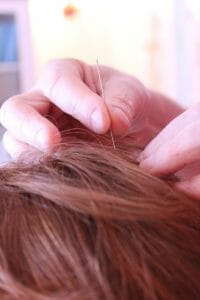Our bodies are capable of a wide range of physical activities as long as we keep them healthy and in top shape. But if you’re not careful, overusing them in strenuous or repetitive motions can cause injuries that limit your range of motion.
Repetitive stress injuries are not an easy feat to endure. Mild cases can go away on their own, but more severe cases need medical intervention.
If you’re tired of dealing with its pain, you can try acupuncture. It can help minimize its symptoms by reducing inflammation and swelling. If you want to know more about how acupuncture can treat your injuries, read more below.
What is repetitive stress injury?
Repetitive stress injury or repetitive strain injury (RSI) is a condition that affects your muscles, tendons, or nerves from repetitive motions or constant use. It usually affects your fingers, wrists, hands, arms, shoulders, and knees.
It’s a common condition that’s often caused by activities like typing, using a computer mouse, poor posture, awkward seating positions, or sports training. Working in cool climates, using vibrating instruments, and stress can also increase your risk of developing RSI.
If left untreated, repetitive stress injury could lead to conditions like:
- Carpal tunnel syndrome
- Tennis elbow
- Rotator cuff tendonitis
- Trigger finger
- Shin splints
- Back strains
What are the symptoms of repetitive stress injury?
To determine if you’re experiencing repetitive stress injury, some symptoms you need to look out for are:
- Swelling
- Pain
- Stiffness
- Tenderness
- Weakness
- Sensitivity to cold or hot temperatures
Previous injuries can also put you at risk of developing this condition. If you experience any of the symptoms, medical professionals recommend you rest and avoid overusing your injured body part. You can also treat it at home by applying an ice compress or wrapping it in an elastic bandage to help reduce the swelling.
Who can get repetitive stress injuries?
RSI is the most common job-related injury since you usually make repetitive motions at work, such as sitting at a desk chair, operating a drill, or playing a musical instrument.
Jobs that are usually associated with repetitive stress injury is a surprisingly long list as it include typists, musicians, surgeons, nurses, dentists, tailors, cleaners, carpenters, swimmers, and golfers.
But this doesn’t mean that everyone that’s working in a repetitive job will develop RSI since plenty of workers don’t experience pain after several years of service. Sometimes the pain you experience may also just be a sign of aging.
Can acupuncture help with repetitive stress injuries?
If the pain of RSI feels too much to handle, acupuncture can help relieve some of your symptoms. It reduces inflammation and muscle stiffness by stimulating your nervous system. It also releases pain-relieving hormones called endorphins, so you’ll feel less pain after treatment.
A study shows that acupuncture significantly improves knee pain symptoms in athletes. It also enables them to run better by balancing their muscle strength and reducing their risk of injury.
According to Dr. Jon Kukor of Orlando Alternative Health, acupuncture can also reduce the swelling around your synovial sheath that’s caused by trigger fingers. While another study shows that it’s as effective as low-dose steroid treatments for treating mild to moderate cases of carpal tunnel syndrome.
How long does it take to cure RSI?
The duration of curing your RSI will depend on the severity of your condition and how well it responds to your acupuncture treatment. Some will only take a few weeks to heal, while more severe cases can take 3-6 months.
Make sure to discuss your treatment plan with your acupuncturist so you know what to expect. You’ll usually only need 1-2 sessions per week. But if the pain is more intense, your acupuncturist may recommend more.
Resting your injuries is also essential for healing, so avoid doing the repetitive activity that caused your injury during this period.
Who should not do acupuncture?
Before booking an acupuncture treatment, it’s always a good idea to consult your doctor first to know if it benefits your condition. You can use it as a supplementary method of managing pain alongside other treatments that your doctor prescribes.
But if you’re taking anticoagulants, have a blood disorder, or metal allergy, this treatment isn’t recommended for you. If you have a pacemaker, avoid acupuncture treatments that involve electrical stimulation since this will interfere with your device.
Also, let your practitioner know if you’re pregnant since certain trigger points aren’t safe to use during pregnancy.
Looking for an acupuncture clinic?
If you’re looking for a reputable acupuncture clinic, you should check out Orlando Alternative Health. They have a team of licensed professionals that can help treat your repetitive stress injuries. They also offer dry needling, cupping, nutrition therapy, and vitamin injections. For questions and inquiries, feel free to contact them now.
